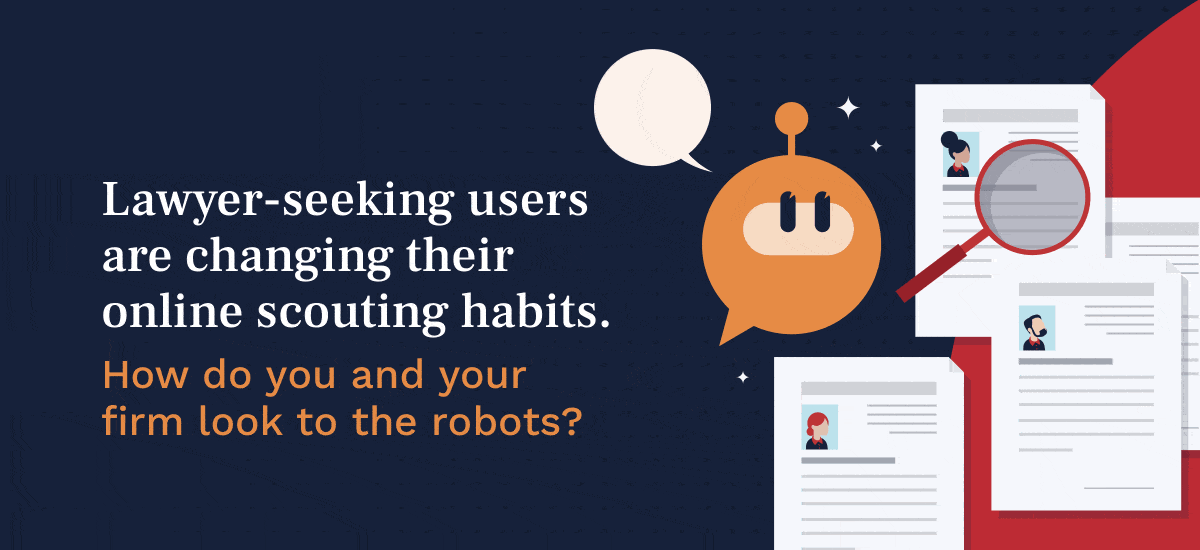Love them or hate them, we know that lawyer rankings are used by your human prospects to scout legal talent; according to Greentarget, 62 percent of C-suite members and 52 percent of in-house counsel report them as “important” when researching new firms.
But there’s a new audience that must be factored into our marketing strategies: Generative AI.
Since ChatGPT’s public launch in November 2022, the tool has been used by 100 million users, many of whom use it – and tools like it – to replace traditional search engines like Google and Bing. Indeed, in a study by Aberdeen Strategy & Research, 65 percent of users believe AI tools can replace traditional search engines.
So if the numbers hold true, that’s 65 million people who could turn to generative AI not only to summarize or generate content, but to find answers, recipes and….lawyers.
How AI Finds Lawyers
In an experiment on Medium, a ChatGPT user (and legal tech CEO) asked the software to help identify the best personal injury lawyers in Philadelphia.
Here’s what happened:
- The free version returned no results, essentially telling the user to do their own research.
- The paid ($20 per month) version provided a specific list of five lawyers and firms, all of whom were credentialed by the Best Lawyers in America and Super Lawyers.
The experimenter then replicated the search on Google, where the top results all came from sponsored firms – firms that simply paid money for the keyword, versus firms that had earned some credibility in the marketplace.
In additional queries, the experimenter found ChatGPT sourcing lists of lawyers through Avvo and Findlaw, directories that allow clients to rate their lawyers.
What This Means for You
Law firms must recognize that tech-savvy users are changing their online scouting habits. They are moving away from tried-and-true search engines like Google, which display results based on complex algorithms and ad dollars, and toward generative AI that – so far as we can tell – is focused more on delivering results based on quality.
The Medium experiment shows that ChatGPT and its fellow robot overlords are being trained on lawyer rankings – Best Lawyers and Super Lawyers chief among them – as well as client reviews. It’s only a matter of time before it takes into account other recognitions, such as Chambers and Benchmark Litigation.
And while many aspects of the AI revolution are disconcerting, this is actually pretty affirming: When it comes to rankings, this experiment suggests that generative AI may be a meritocracy instead of a marketplace.
Heading into 2024, it’s worth taking an inventory of your rankings from a new perspective: How do we look to the robots?

